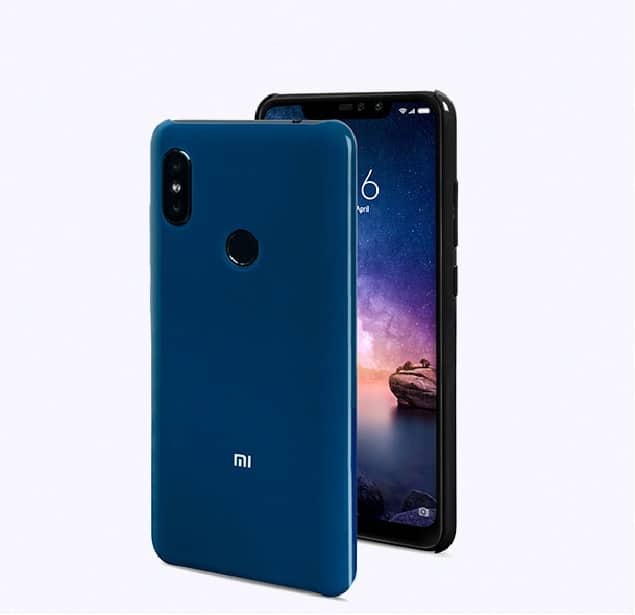
Xiaomi is absolutely dominating the budget and mid-range segment in India. The company’s smartphone lineup might be as crowded as Samsung but despite that, there’s no denying the fact that it makes some quality smartphones (and even accessories!).
Amidst the barrage of phones that Xiaomi offers in India, its Redmi Note lineup has always managed to separate itself from the crowd. Right from the Redmi Note 3 in 2016, Xiaomi’s Redmi Note devices have set a benchmark for other mid-range devices to beat.
Earlier this year, the company unveiled the Redmi Note 5 Pro which continues to remain the best all-around smartphone in India under the 15K category. Or it was. With the launch of the Redmi Note 6 Pro, Xiaomi is trying to thwart all the new competition from Asus, Nokia, and RealMe and reassert its dominance in the mid-range segment in India. This time around, Xiaomi has focused solely on improving the camera and leaving almost all other aspects unchanged — and rightfully so since the formula has worked wonderfully for the company.
So how does that translate in real life? Is the Redmi Note 6 Pro setting a new benchmark for other mid-range devices to follow? Read our review to find out.
Redmi Note 6 Pro Review
Design and Display

The Redmi Note 6 Pro is an evolutionary upgrade over the Redmi Note 5 Pro. It has the same design language as its predecessor with a few modest changes to keep up with the times. This means that while we have seen the likes of Nokia and Honor switch to phones with a glass back, the Redmi Note 6 Pro continues to come with an aluminum chassis. It is not a unibody design as the top and bottom edges have plastic inserts — similar to the Redmi Note 4 and Redmi Note 3 — which act as an RF window.
In hand, this means the Redmi Note 6 Pro simply does not feel as premium as the Nokia 6.1 Plus or the Honor 8X. On the flip side, the lack of glass means the phone is more durable than them since there’s no fear of the rear cracking in case of a drop. Xiaomi also says the Redmi Note 6 Pro has a water-resistant coating that should be good enough for the device to survive minor liquid spills.

The front of the Redmi Note 6 Pro is not going to win it any brownie points in the design departments as well. It features a notched 6-inch FHD+ display, with Xiaomi only slightly reducing the bezels when compared to the Redmi Note 5 Pro.
However, switch on the display and you will be amazed at its quality. Not only is the LCD panel of a higher quality but it is also laminated closer to the cover glass which gives it a ‘sticker’ like feeling. The improved display on the Redmi Note 6 Pro is easily one of its most underrated improvements over the Redmi Note 5 Pro. The 6-inch display is vibrant, colorful, has higher contrast, and can reach higher brightness levels which overall makes it a more pleasing panel to look at when compared to the Redmi Note 6 Pro or even the Honor 8X.
Performance and Battery Life

The internals of the Redmi Note 6 Pro might disappoint many. Strangely, Xiaomi offers the same internals with the Redmi Note 6 Pro as it did with the Redmi Note 5 Pro. This means the device is powered by a Snapdragon 636 chipset running at 1.8GHz, 4/6GB RAM, and 64GB storage. But just like the Redmi Note 5 Pro, the Redmi Note 6 Pro packs enough grunt to handle day-to-day tasks with utmost ease. Its benchmark scores will definitely not win any awards but for regular use, the Redmi Note 6 Pro does not feel slow at all. The device is also capable of running PUBG smoothly, though only at medium settings.
With up to 6GB RAM, the Redmi Note 6 Pro is also an excellent multi-tasker. If you play a lot of heavy games, it is recommended you go for the 6GB RAM variant as the 4GB variant will unload them if there are multiple apps running in the background.
If you care more about numbers and benchmark scores, then the Redmi Note 6 Pro is definitely not for you. In India at least, Asus, Motorola, and others will launch mid-range phones at nearly the same price point as the Redmi Note 6 Pro with a more powerful Snapdragon 660 chipset.
As for battery life, the Redmi Note 6 Pro performs the same as its predecessor here. This is not surprising since the device comes with the same 4,000mAh battery. This means on a single charge, the Redmi Note 6 Pro will easily get through almost two days of medium use or 1.5 days of heavy use.
One nice upgrade over the Redmi Note 5 Pro is the addition of Quick Charge 3.0 on the Redmi Note 6 Pro. This means that when charged with a compatible charger, the Redmi Note 6 Pro can be charged to almost 50 percent in around 45 minutes which should be good enough to easily last a day of heavy use.
Xiaomi does not bundle a Quick Charge 3.0 charger with the Redmi Note 6 Pro so you will have to invest in one separately.
Camera

The highlight of the Redmi Note 6 Pro over the Redmi Note 5 Pro is its improved dual-camera setup at the rear. It now also comes with a dual-camera setup at the front. It is this improved camera system which gives the Redmi Note 6 Pro a huge advantage over its competitors as well.
The primary 12MP shooter on the Redmi Note 6 Pro is a newer and larger Sony sensor featuring large 1.4um pixels and a wider f/1.9 aperture. This is paired with a secondary 5MP depth sensor and improved processing algorithms. These improvements mean the Redmi Note 6 Pro takes photos that are more vivid, detailed, and sharp when compared to the Redmi Note 5 Pro.
This is immediately obvious in challenging lighting situations where the Redmi Note 6 Pro performs surprisingly well for a budget mid-range device.
The selfie camera at the front is pretty good as well, though Xiaomi’s post-processing ensures that all the selfies are heavily processed and ‘beautify’-ed.
Software

The Redmi Note 6 Pro runs on MIUI 10 based on Android 8.1 Oreo. Xiaomi’s skin continues to be heavy, though it has optimized it properly for optimal performance. Compared to previous builds of MIUI, Xiaomi has started including more bloatware in its devices in recent times. While most of them can be uninstalled, they are still unnecessary apps which occupy storage space and system resources.
If you have used MIUI before, you will feel right at home with MIUI 10 on the Redmi Note 6 Pro. The newest iteration of MIUI comes with a new system theme, slightly faster app loading times, new system and notification sounds, navigation gestures, and more. MIUI 10 polishes some of the rough edges of MIUI 9 for an even better experience.
If you are not fond of MIUI though, that’s definitely not going to change with MIUI 10. If you prefer a stock Android-like experience, you might want to check out Xiaomi’s excellent Android One device — the Mi A2.
Conclusion
The Redmi Note 6 Pro launches at an odd time. With 2018 smartphone launch season behind us, the handset has launched when other OEMs will soon unveil their 2019 mid-range devices with faster chipsets, improved design, and camera. The Redmi Note 6 Pro is definitely going to lose to them in the design, build quality, and performance department. But in the camera department, the Redmi Note 6 Pro is going to give them a run for their money.
This change in the equation will happen in the future. Presently though, the Redmi Note 6 Pro is easily the mid-range Android device to buy in India. Just like the Redmi Note 5 Pro before it. And the Redmi Note 4. And even the Redmi Note 3.

















